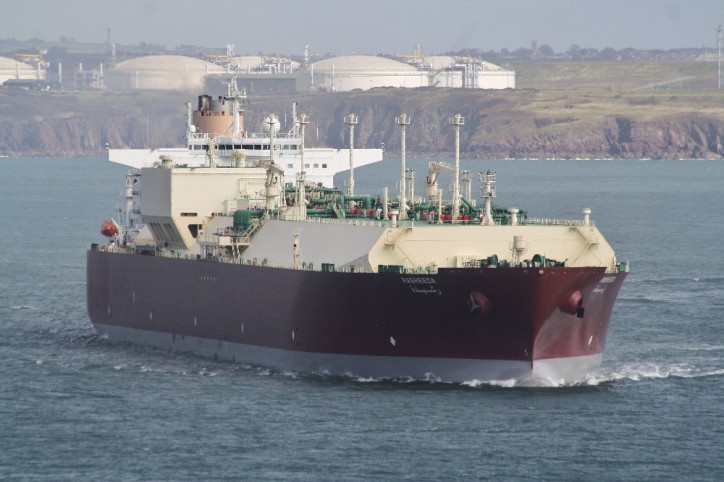A study is being conducted on the possibility of converting more vessels that are part of the Qatari ‘Q-Fleet’ to use liquefied natural gas (LNG) as fuel to meet global emissions regulations, a Nakilat official has said.
Speaking to reporters after the board meeting of the Society for Gas as a Marine Fuel (SGMF) on Monday (Apr 2), Nakilat fleet management director Samir Bailouni said the international shipping community “is facing a challenge” to find alternative fuel that has reduced sulphur content to lower emissions.
Currently, Q-Max vessel Rasheeda is the only ship in the Qatari Q-Fleet to use LNG as fuel after it was retrofitted in 2015 with the gas-burning M-Type Electronically Controlled – Gas Injection (ME-GI) Systems, which have now been successfully commissioned.
“At the moment there are no plans to convert more vessels but there is a study, which is in cooperation and total coordination with our charters: Qatargas and RasGas. It is not our sole decision, but it is also a decision by our charters,” said Bailouni.

LNG Tanker Rasheeda Image: helderline.nl
He said the SGMF is working with its international partners in the shipping industry “to work together towards the global responsibility to protect the environment.”
“At the moment, you can use fuel with sulphur content of up to 3% if you are not in specific areas like Northwest Europe, US, or Australia. The new regulation is 0.1%, which is almost 300 times less sulphur,” Bailouni told Gulf Times.
He noted that more companies and countries are now abiding by global emissions regulations, adding that the one of the goals of the SGMF “is to work with them in trying to promote the use of cleaner fuel in the shipping industry.”
“In 2020, it is expected to be a global requirement to use clean fuel in the shipping industry…sooner or later everybody needs to use clean fuel,” he stressed.
Asked if Qatar could be a forerunner in supplying alternative fuel sources for the shipping industry, Bailouni said there are some types of fuel in Qatar such as diesel that are considered as clean fuel.
“Qatar produces hydrocarbons; therefore any oil and gas producing country can become a producer of clean fuel and clean alternatives,” Bailouni said.
He added: “Alternative fuel is not only limited to gas, but the SGMF is only focused on gas as an alternative fuel. However, outside our society, there are other sources of fuel such as diesel or heavy fuel oil that are low in sulphur because it has been stripped off its sulphur content therefore becoming cleaner fuel.”
Source: Gulf Times